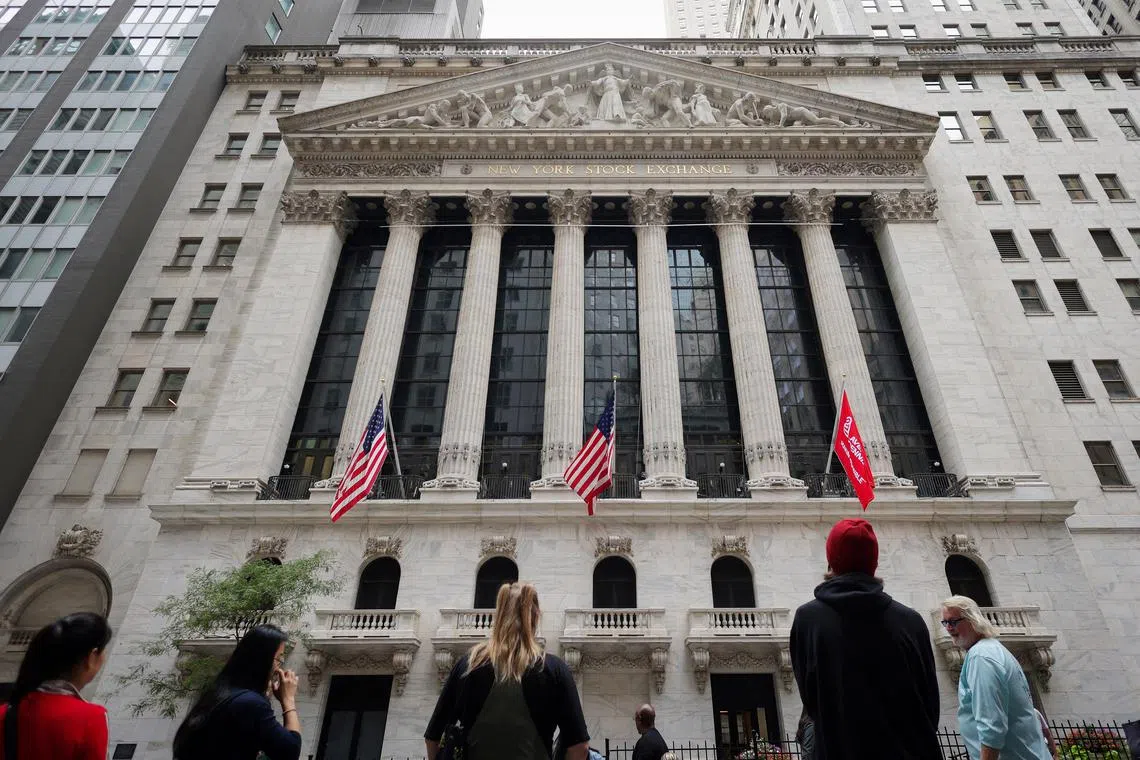Decade of big US stock market gains is over, Goldman strategists say
Sign up now: Get ST's newsletters delivered to your inbox

The latest Bloomberg Markets Live Pulse survey showed investors expect the US equity rally to extend into the final stretch of 2024.
PHOTO: REUTERS
New York - US stocks are unlikely to sustain their above-average performance of the past decade as investors turn to other assets including bonds for better returns, Goldman Sachs Group strategists said.
The S&P 500 Index is expected to post an annualised nominal total return of just 3 per cent over the next 10 years, according to an analysis by strategists including David Kostin. That compares with 13 per cent in the last decade, and a long-term average of 11 per cent.
They also see a roughly 72 per cent chance that the benchmark index will trail US Treasury bonds, and a 33 per cent likelihood that they will lag inflation through 2034.
“Investors should be prepared for equity returns during the next decade that are toward the lower end of their typical performance distribution,” the team wrote in a note dated Oct 18.
US equities have rallied following the global financial crisis, first driven by near-zero interest rates and later by bets on resilient economic growth. The S&P 500 is on track to outperform the rest of the world in eight of the last 10 years, according to data compiled by Bloomberg.
Still, the 23 per cent bounce in 2024 has been concentrated in a handful of the biggest technology stocks. The Goldman strategists said they expect returns to broaden out and the equal-weighted S&P 500 to outperform the market cap-weighted benchmark in the next decade.
Even if the rally were to remain concentrated, the S&P 500 would post below-average returns of about 7 per cent, they said.
The latest Bloomberg Markets Live Pulse survey showed investors expect the US equity rally to extend into the final stretch of 2024. The strength of Corporate America’s results are seen as more crucial for the stock market’s performance than who wins the US presidential election or even the Federal Reserve’s policy path. BLOOMBERG


